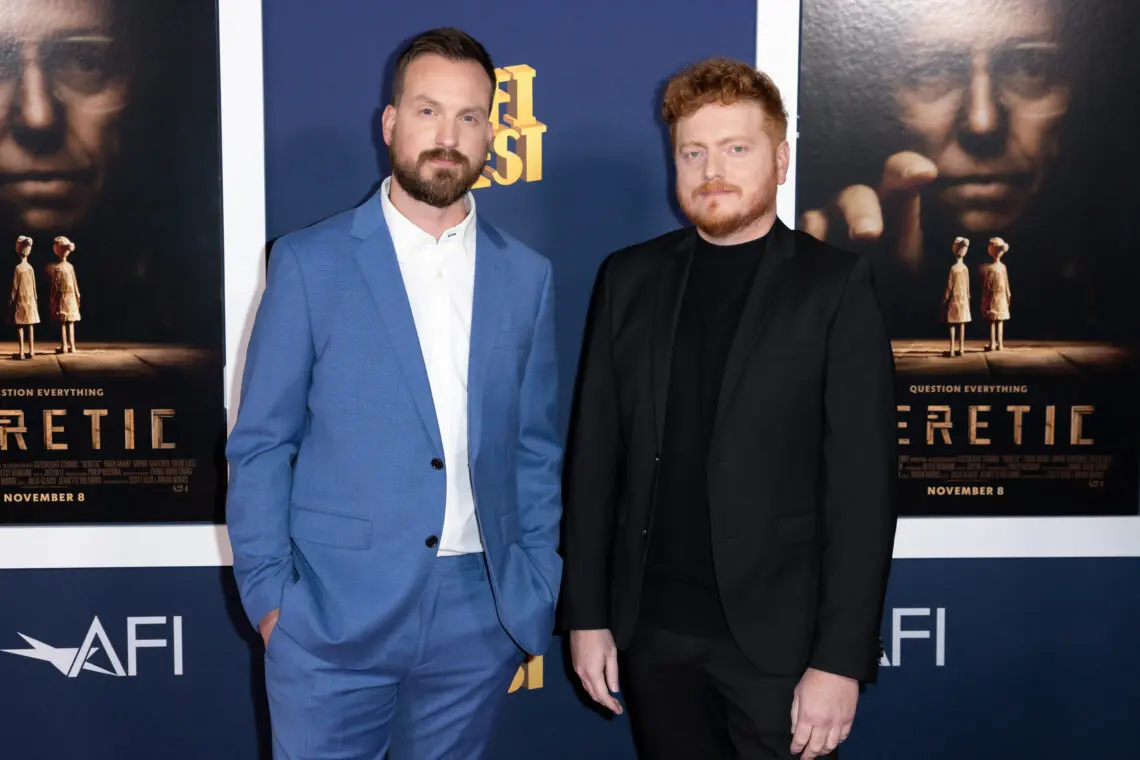The controversy of AI in filmmaking: A closer look at “Heretic” by A24
An unconventional end credits message
Scott Beck and Bryan Woods’ latest film, “Heretic”, is set to hit theaters on November 8th, courtesy of A24. This thought-provoking movie delves deep into themes of faith and humanity. However, what sets it apart from other films is a striking message found in its end credits: “No generative AI was used in the making of this film.”
This bold statement stands as a testament to the directors’ commitment to traditional filmmaking techniques while inviting viewers to engage in an important conversation about the potential consequences of generative AI in the industry.
A compelling narrative
“Heretic” follows the intense journey of two Mormon missionaries, played by Sophie Thatcher and Chloe East, who find themselves trapped in the home of a mysterious man, portrayed by Hugh Grant. Despite the limited use of visual effects, the directors felt it was crucial to highlight their avoidance of generative AI.
Woods shares, “We have no illusions that when people watch Heretic they’re going to wonder, ‘Did they use generative AI?’ But it was important for us to put that out there because it’s a discussion that needs to happen.”
The impact of generative AI
Generative AI is a technology that can create images, videos, text, and more by reacting to prompts. Recent advancements have enabled post-production alterations and even the creation of entire films from scratch. High-profile movies like “Furiosa” and Alien: Romulus have already experimented with this technology.
Woods vehemently criticizes generative AI, describing it as, “an algorithm jumbling a bunch of data together and presenting it as art. It’s not human and borders on theft.” He emphasizes the ethical implications, stating, “The idea that an algorithm can scrape the entirety of human history and art from the internet, repurpose it, and then profit off it… feels inherently wrong.”
The ethical dilemma
Woods continues, “It’s vital for people to start talking about the need for human involvement in art, business, and every aspect of life. We’re on the brink of seeing many jobs replaced overnight. It’s going to happen fast, especially in the arts, where business decisions prioritize profit over the artistic process.”
Beck and Woods are not alone in their concerns. Their criticism comes amid a flurry of deals between industry heavyweights and tech companies. For instance, Blumhouse has partnered with Meta to experiment with generative AI filmmaking tools, while another major studio has established a group to oversee AI integration responsibly.
A supportive studio
Beck praises A24 for supporting their stance on generative AI. “A24 is incredibly artist-friendly. They focus on human interactions rather than algorithms or test scores dictating a movie’s rollout. We respect that human touch,” says Beck.
He underscores the importance of having these ethical conversations now, stating, “We’re in a time of significant ethical battles. The race is ahead of us, and it’s vital to discuss these matters before corporate structures force changes that could be dangerous. If unchecked, we could face a very precarious situation within the next five to ten years.”
The allure and danger of AI
Despite acknowledging the impressive capabilities of AI, Woods remains wary. He references a recent industry study that estimates generative AI could eventually replace 300 million full-time jobs. Woods doesn’t mince words about the potential impact, declaring, “AI is an amazing technology, and incredible things will come of it. But we must be cautious. What’s being created with generative AI and video is astonishing, yet we might need to bury this technology underground with nuclear warheads to prevent it from causing harm.”
The future of filmmaking
As more studios and tech companies explore the capabilities of generative AI, it’s essential to maintain a balance between innovation and ethical considerations. Beck and Woods’ “Heretic” serves as a powerful reminder of the importance of preserving the human element in the creative process.
Stay tuned for more updates and insights into the ever-evolving world of filmmaking. Share this article with your friends on social media to join the conversation about the role of AI in the arts.

 Italian
Italian







